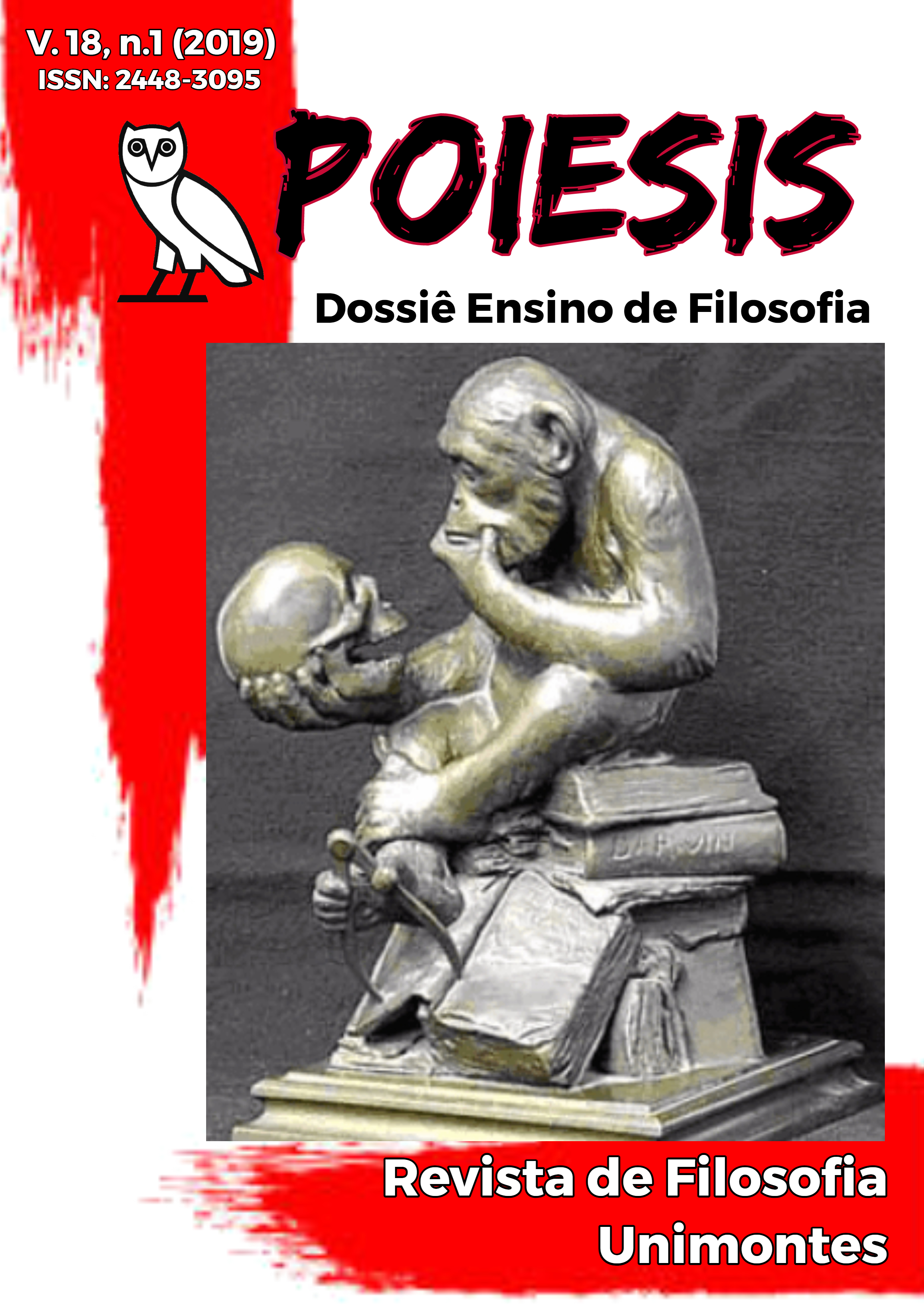A singular of bad will
Conceptions on the creation in the thought of Gilles Deleuze
Keywords:
Deleuze. Thought. Creation.Abstract
In this article, we seek to make a trajectory through the philosophy of Gilles Deleuze, trying to understand in what way the thought is produced. In this way, anapproach of fundamental concepts in his work is realized and through an exercise of thought together with Deleuze, Guattari and François Zourabichvili, will be investigated how the notion of image of thought works and its effect in the history of philosophy. The image of thought is what direct and determine the coordinates that the thought produces after the clash with the sign, and it can both rely on figures and assumptions as it can create and give a new interpretation to the sign. According to the authors, there are two images of thought: the dogmatic image that is based on morality and representation; and other image of thought that implies in creation. To the authors, thought is not conceived as a natural willwithin the philosophy of difference, its needed a clash with a certain sign tothe thought be produced. In this research an effort is made in order to understand whatthe objective and subjective presuppositions of thought is, how the clash with the sign happens within the possibilities and the necessity that makes the thought. Thinking does not depend on goodwill and not belongingto the subject.
Downloads
References
DELEUZE, G. Diferença e Repetição. Tradução de Luiz Orlandi e Roberto Machado. Rio de Janeiro: Graal, 1988.
_______. Nietzsche e a Filosofia. Rio de Janeiro: Editora Rio, 1976.
_______. Proust e os Signos. Tradução de Antonio Piquet e Roberto Machado. 2ª ed. Rio de Janeiro: Forense Universitária, 2010.
_______; GUATTARI, F. O Que é a Filosofia? Tradução de Bento Prado Jr. e Alberto Alonso Muñoz. São Paulo: Editora 34, 2010.
ZOURABICHVILI, F. Deleuze: Uma Filosofia do Acontecimento. Tradução e prefácio de Luiz B. L. Orlandi. São Paulo: Editora 34, 2016.
Downloads
Published
How to Cite
Issue
Section
License
Copyright (c) 2021 Revista Poiesis

This work is licensed under a Creative Commons Attribution-NonCommercial-NoDerivatives 4.0 International License.





.png)

